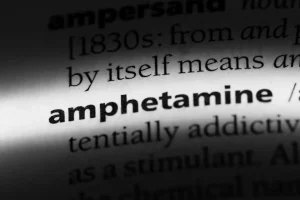Alcohol and Women

From 1990 to 2015, PRAMS asked women to report whether they had consumed any alcohol during the last three months of their pregnancy. By focusing on this period, PRAMS sought to minimize recall bias and provide a clear picture of alcohol use in a critical period. Women who answered ‘yes’ were classified as having consumed alcohol during pregnancy, while those who responded ‘no’ were categorized as alcohol during pregnancy non-drinkers.

About Medical News Today
Additionally, we excluded Priority Treatment laws that mandate priority access to substance abuse treatment for pregnant and postpartum women who abuse alcohol. This focused approach was chosen to concentrate on punitive policies that directly impact child welfare decisions, thereby avoiding confusion with other legal processes related to reporting, criminal prosecution, civil commitment, or treatment prioritization. This approach aims to highlight the need for potential reform in child welfare policies to improve maternal and child health outcomes. Screening all women of childbearing age and those who are pregnant regarding their alcohol consumption is a practical process to identify women at risk for maternal drinking for earlier recognition of potentially exposed fetuses and to diagnose FASD sooner. This can result in a reduction of primary FASD disabilities as well as secondary disabilities often related to FASD in the absence of diagnosis.

STANDARD DRINK

Also, not all people who drink while pregnant feel comfortable talking to their healthcare provider. This means that some people with mild symptoms of FASD might never be diagnosed. This is of concern because among women who consume alcohol during the pregnancy, the majority continues to drink throughout their lactation period.
What’s the difference between fetal alcohol syndrome (FAS) and fetal alcohol spectrum disorders (FASDs)?

While no amount of alcohol is safe during pregnancy, drinking small amounts before realizing you’re pregnant likely won’t cause any harm. Drinking alcohol during pregnancy increases the risk of miscarriage, premature birth and your baby having a low birthweight. The symptoms of this condition will be with the person throughout their entire life. Over time, a number of secondary effects can happen in people with FAS, particularly in those who aren’t treated for the condition in childhood. These are called secondary effects because they’re not part of FAS itself. Instead, these secondary effects happen as a result of having FAS.

Six drinks in an hour
- From 1990 to 2015, PRAMS asked women to report whether they had consumed any alcohol during the last three months of their pregnancy.
- The authors noted, however, that it’s possible that developmental problems linked to maternal drinking could emerge later in childhood.
- Any amount of alcohol during pregnancy can cause fetal alcohol syndrome.
- Experts advise that drinking any amount of alcohol while pregnant can pose a severe health risk to the fetus, causing developmental and social issues.
This condition can be prevented if you don’t drink any alcohol during pregnancy. It’s possible that even small amounts of alcohol consumed during pregnancy can damage your developing fetus. If you suspect your child has fetal alcohol syndrome, talk to your doctor or other healthcare professional as soon as possible.
Women with a bachelor’s degree or more (11.8%), the uninsured or self-payer (13.1%), women with adequate prenatal care (12.4%), and women living in Colorado (12.2%), or New York (11.9%) had higher rates of pregnancy drinking than their counterparts. Furthermore, some scholars believe that punitive alcohol policies have the primary goal of restricting women’s reproductive rights, rather than reducing alcohol-related harms in the population5. There is a need to directly address the question of whether these alcohol policies, especially in terms of their punitive or supportive environment, are likely to reduce the harms from prenatal alcohol exposure5,7. It’s also recommended that you avoid beverages containing alcohol when you’re trying to become pregnant. Many people don’t know they’re pregnant for the first few weeks of pregnancy (four to six weeks).
Getting help to stop drinking alcohol
Knowing that fetal alcohol exposure is the most common nongenetic cause of cognitive impairment, it is critical to identify maternal alcohol consumption early as a primary target to prevent downstream FASD. Therefore, innovative research studies are vital to better understand the mechanism of alcohol on pregnancy to then target the development of therapeutic strategies to mitigate its adverse effects and improve maternal and fetal outcomes. Alcohol exposure during pregnancy results in impaired growth, stillbirth, and fetal alcohol spectrum disorder. Fetal alcohol deficits are lifelong issues with no current treatment or established diagnostic or therapeutic tools to prevent and/or ameliorate some of these adverse outcomes. Despite the recommendation to abstain, almost half of the women consume alcohol in pregnancy in the United States. We found no evidence to support the effectiveness of punitive policies targeting alcohol consumption among pregnant women.

